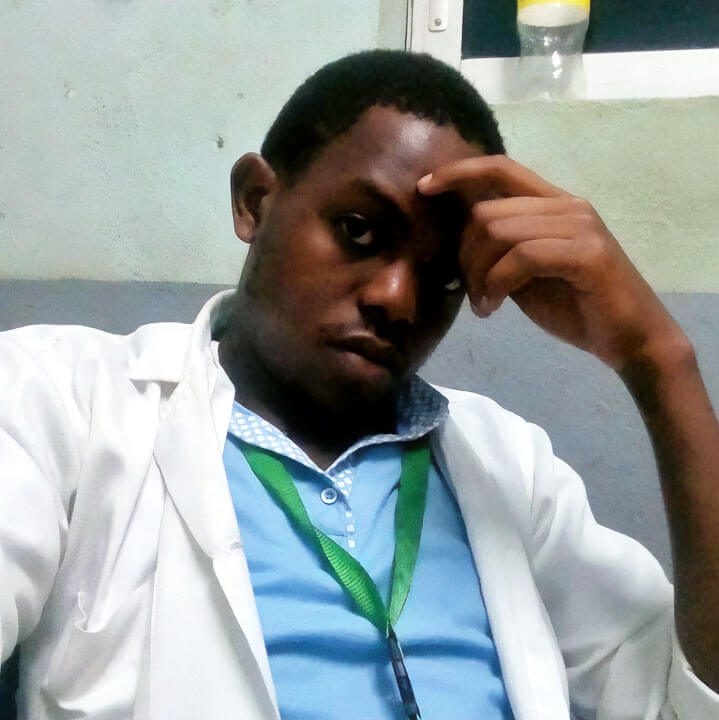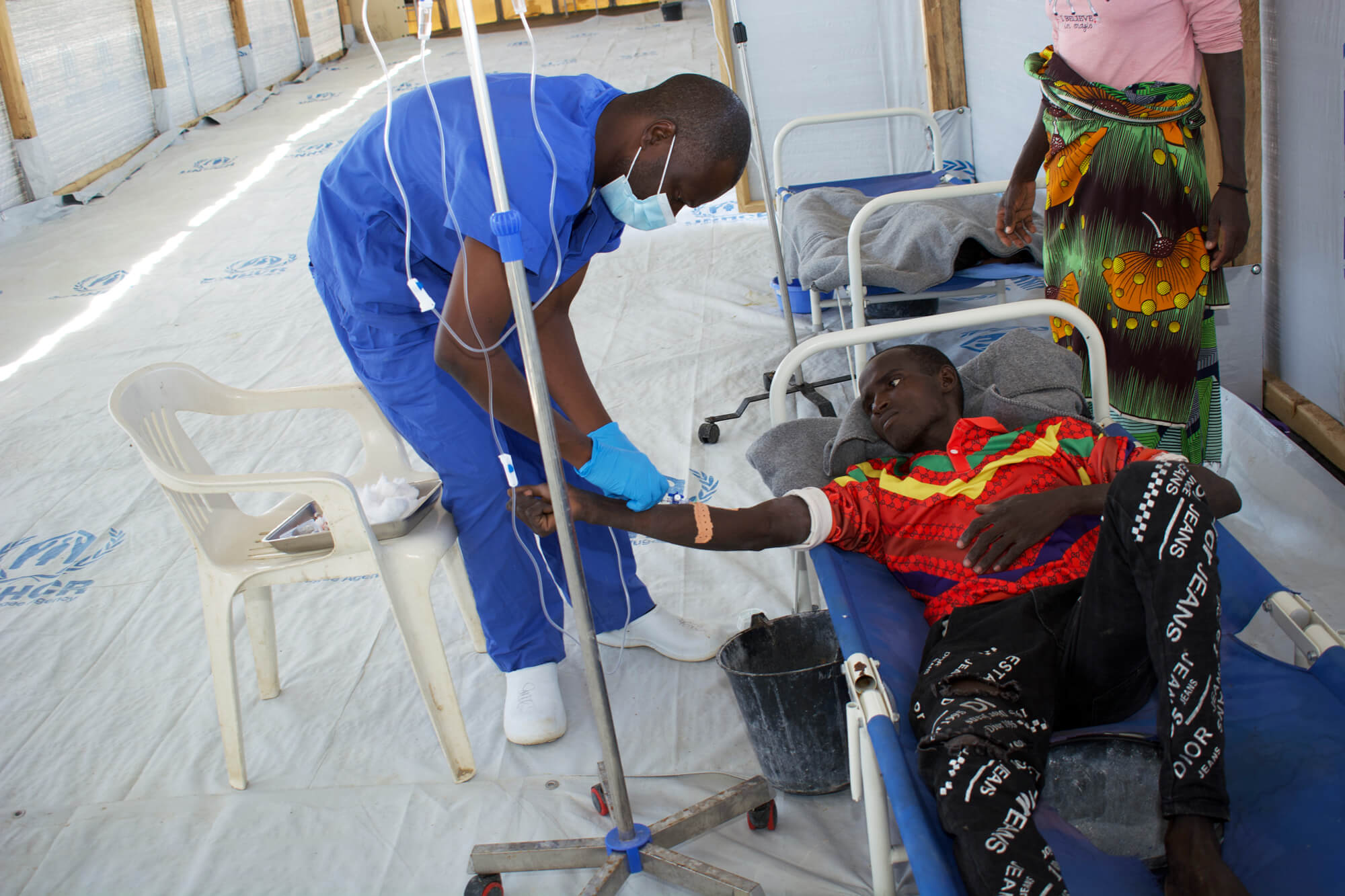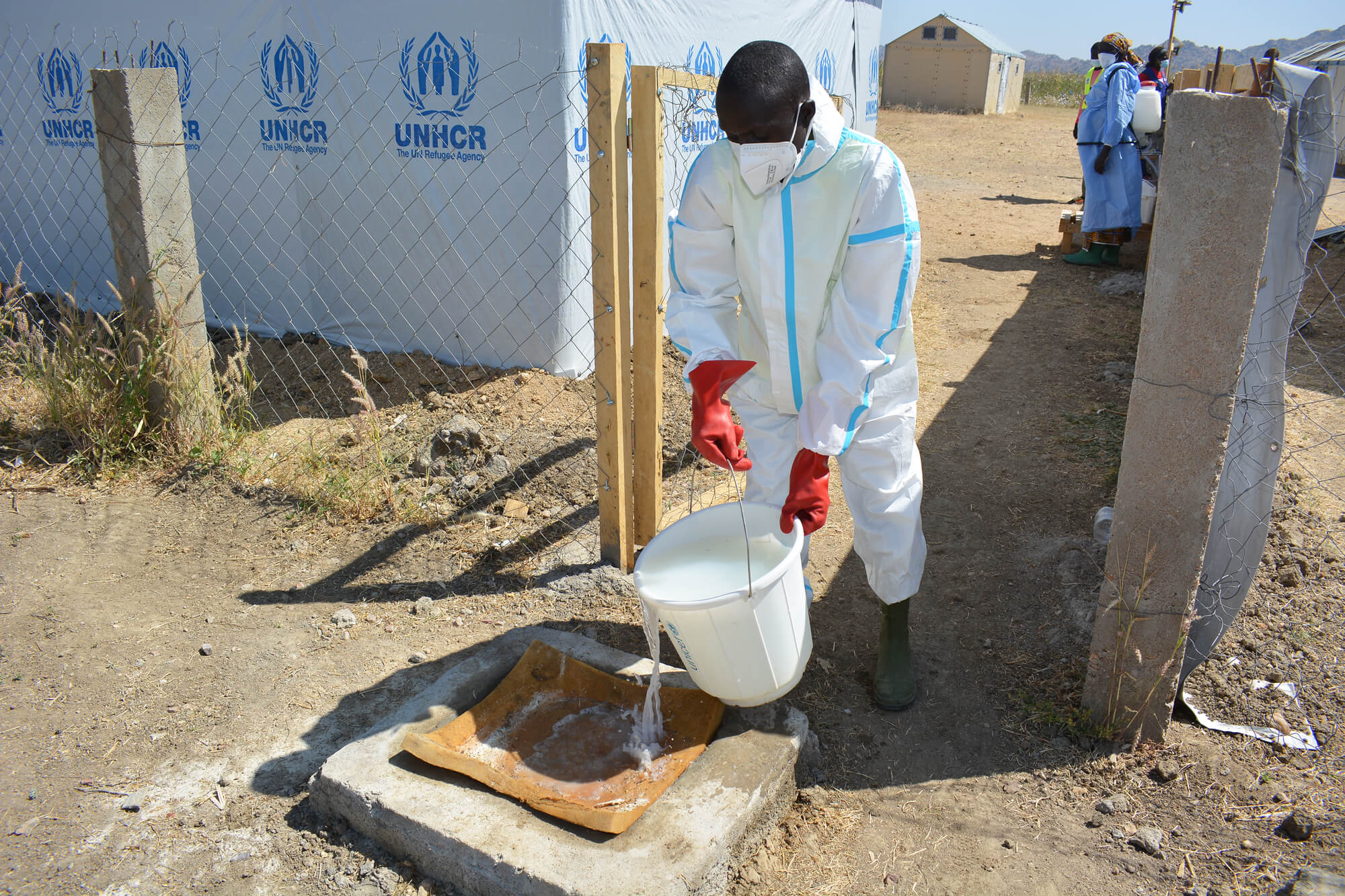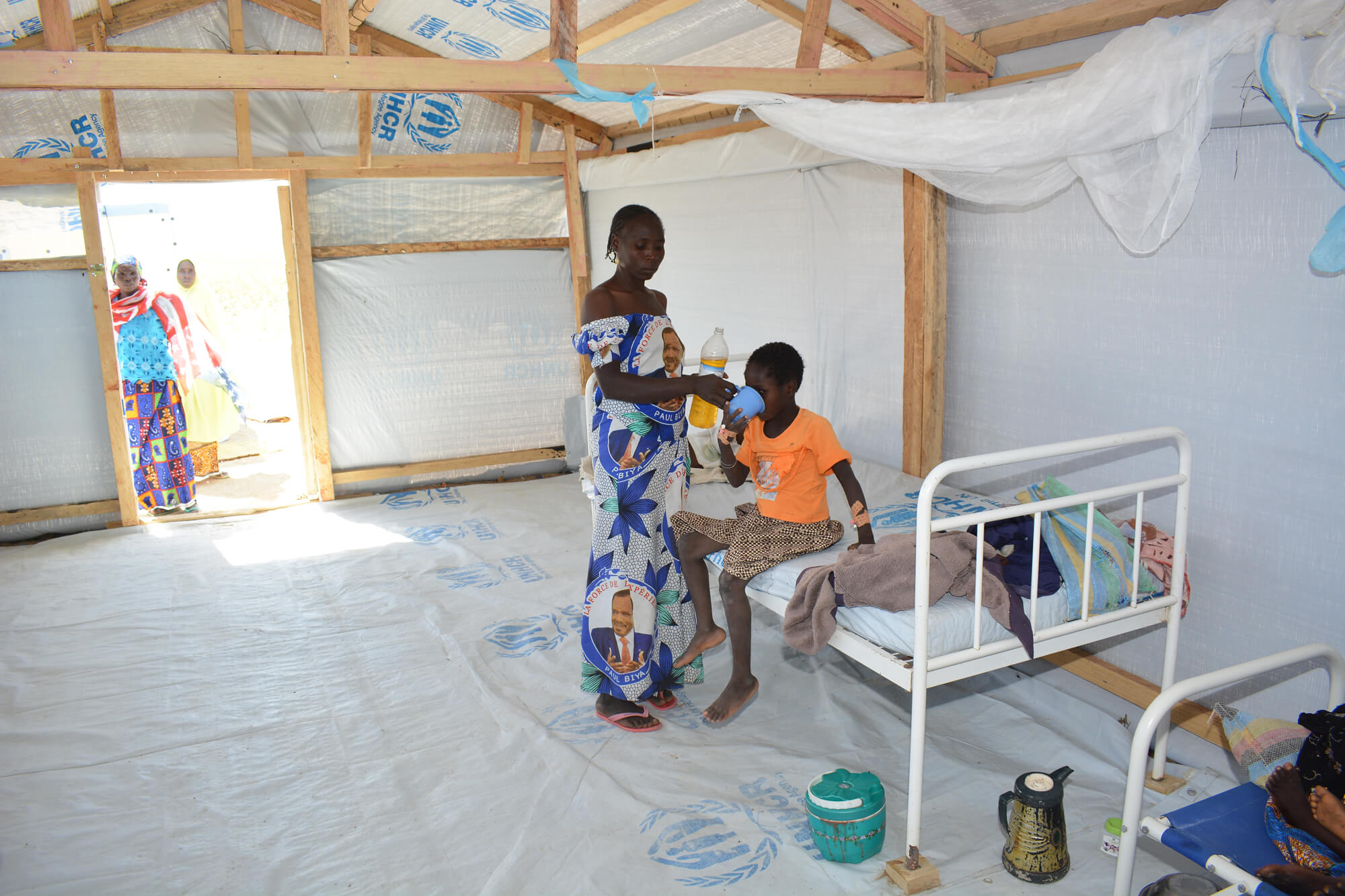Dr. Chrysal Beaudou Ngouateu carries himself like a man with exceptional determination. He speaks with a kind of clarity few would have after working as long and intensely as he has over the past several months, as Medical Doctor/Surveillance Coordinator at Minawao refugee camp. In his position, Dr. Ngouateu manages disease surveillance activities across Minawao while supporting health and nutrition programs for the camp’s growing refugee population.
Dr. Ngouateu’s workdays start early in the morning and extend late into the evening, yet he still explains the camp’s healthcare operations and breaks down Minawao’s operations with ease. He joined the International Medical Corps Health and Nutrition team to provide clinical services and strengthen disease surveillance and develop an integrated response to the camp’s health challenges. One of his chief concerns lately is the outbreak of cholera among camp residents.

More than 75,000 refugees live in Minawao camp; it was designed to host 10,000. The people living in the camp rely on the Minawao health center, which consists of two main health facilities (known as “postes”), with staff and volunteers composed of five doctors, 25 or so nurses, 28 aide-nurses, nine midwives, and nutrition and community staff. When cholera first hit the camp on October 15, 2022, camp administrators responded to the outbreak by converting one of the two healthcare postes into a cholera treatment centre. This meant that the need for healthcare increased dramatically while the number of personnel—who were already serving tens of thousands of people—remained the same and space decreased for all cases aside from cholera.
In addition to infrastructure challenges that Minawao had faced before the outbreak, such as insufficient toilets and clean water, the camp healthcare system struggles to keep enough medicine in stock for camp residents. Shortages of staff and medicine create significant challenges in addressing cholera, which “is an easily treatable disease,” according to the World Health Organization. But when people seek care for cholera from an already strained system, the results can put deadly stress on the whole community.
Dr. Ngouateu recalls one person who normally would have received medication for hypertension before cholera started to spread in Minawao. Because of the lack of drugs available in the camp during the first weeks of the outbreak, this person was unable to treat his hypertension, suffered a stroke and died soon afterward. It is just one example of the ways that it can be difficult to record and categorise the damage that cholera can inflict on a population.

Though Dr. Ngouateu is responsible for a disease surveillance system serving more than 70,000 in the Minawao camp and nearby communities, his grasp of the camp’s operations includes numerous stories like these—individuals who are suffering because of the weight of the cholera outbreak. He knows the medical details and often the impact these stories have on families and neighbors. Dr. Ngouateu is also acutely aware of the opportunities to improve the health situation at Minawao.
Since the outbreak began, International Medical Corps and camp healthcare staff have implemented exacting protocols to prevent the spread of cholera. Teams spray public areas, in addition to the inside and outside of buildings where cholera patients have been. Staff and volunteers place anti-bacterial mats around the camp on which people must wipe their feet to prevent spreading the bacteria that causes cholera. Quarantine areas dedicated to treating cholera patients also help to prevent the spread of the bacteria. Nurses and community health workers treat water and sanitize beds. It’s an expansive and thorough campaign that has been integral to stabilising the overall healthcare situation in the camp.

As the campaign to eradicate cholera from Minawao continues, Dr. Ngouateu is looking for resources that would improve the electrical system at Minawao. Something as simple as a generator to supplement the camp’s solar energy system would significantly improve the healthcare for medical staff at the camp. “Doctors and nurses sometimes treat patients in the emergency and maternity wards by the light of their phone,” he says. Even additional space and a few more beds for mothers and newborns for the approximately 140 deliveries staff perform every month would be a drastic improvement.
As an accomplished disease surveillance and healthcare provider, Dr. Ngouateu is pragmatic about the response necessary to improve conditions within the camp. “For now, at least, we can rehabilitate Minawao camp,” he says. “We can improve nutrition for the people there. It could be good for the moment.”

Find out more about our work in Cameroon, and how you can help International Medical Corps staff around the world fight infectious diseases.
